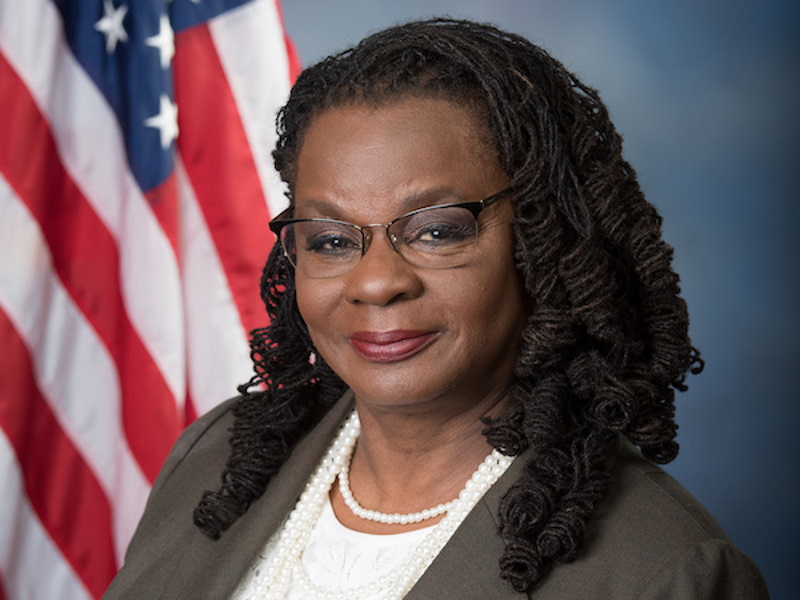Domestic Violence Task Force Co-Chairs Representatives Gwen Moore and Debbie Dingell Introduce Resolution Recognizing Intersection of Violence Against Women, Gun Violence, and Misogyny
During Domestic Violence Awareness Month, Representatives Gwen Moore (WI-04) and Debbie Dingell (MI-06) introduced a resolution recognizing the intersection of violence against women, gun violence, and misogyny. In response, Representatives Gwen Moore and Debbie Dingell released the following statement:
“Misogyny continues to be a major driver of gun violence and domestic violence, with too often, fatal consequences for women. Between 2015 and 2019, more than 11,000 women in America were killed with a gun.
“People with a history of domestic violence shouldn’t have access to guns – period. The evidence is clear and convincing that the presence of a firearm in an abusive situation makes homicide five times more likely. Congress must act to close loopholes in the law that allow abusers to access guns and put women and families in danger. We must also confront the root causes of domestic violence, understanding the way individuals who exhibit misogynistic tendencies toward women often go on to commit violence against them,” said Rep. Dingell.
“Guns are a deadly tool used by abusers to exert power and control, to intimidate, to terrorize, and often kill victims. Most domestic violence homicides are committed using guns. The National Network to End Domestic Violence commends Representatives Gwen Moore and Debbie Dingell for introducing a House resolution reaffirming the importance of preventing individuals with a history of violence against women from possessing firearms. This resolution is especially timely given the Supreme Court’s upcoming review of U.S. v. Rahimi, where the Court will decide whether it will protect survivor and community safety and keep guns out of the hands of abusers,” said Melina Milazzo, Deputy Director of Public Policy, National Network to End Domestic Violence.
“The intersection of misogyny, gender-based violence, and gun violence creates a deadly combination that has gone unaddressed for far too long in our nation. The presence of firearms in cases of domestic violence is known to dramatically increase the risk of homicide and escalate an already dangerous situation,” said Ruth Glenn, President of Survivor Justice Action (formerly the National Coalition Against Domestic Violence). “These interconnected issues must be addressed collectively to create a safer future for all survivors.”
“The likelihood that an interaction will result in a woman’s death is significantly higher when her abuser has access to a firearm. American Indian and Alaska Native women face the highest rates of domestic violence in the country, making firearm restrictions for perpetrators of domestic violence essential to the safety of Indigenous women and communities. The National Indigenous Women’s Resource Center supports the efforts of Congresswoman Moore and Congresswoman Dingell to recognize the dangerous intersection of domestic violence and gun violence,” said Lucy R. Simpson, Executive Director of the National Indigenous Women’s Resource Center (NIWRC).
“Guns and domestic violence are too often a deadly combination,” said Kiersten Stewart, Vice President for Public Policy and Advocacy. “We need to do everything we can to keep firearms away from domestic abusers and help victims know where they can get help. Thank you Congresswomen Moore and Dingell for drawing attention to this critically important issue. ”
This resolution is introduced on the heels of the U.S. Supreme Court hearing oral arguments on the Rahimi case, which will determine whether a federal law prohibiting individuals under a domestic violence civil restraining order from possessing guns, violates the Second amendment. In February 2022, the Fifth Circuit Court of Appeals had ruled that the federal law was unconstitutional. According to the CDC’s The National Intimate Partner and Sexual Violence Survey (NISVS): 2010 Summary Report, more than one in three women have experienced some form of intimate partner violence, including sexual violence, physical violence or stalking in their lifetime. This tragic reality is compounded by America’s gun violence epidemic. According to Everytown, 70 women are shot and killed by an intimate partner each month, which only magnifies the need for further gun violence prevention measures.
Read the full resolution here.
NOTE: This press release was submitted to Urban Milwaukee and was not written by an Urban Milwaukee writer. While it is believed to be reliable, Urban Milwaukee does not guarantee its accuracy or completeness.






















